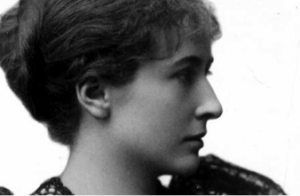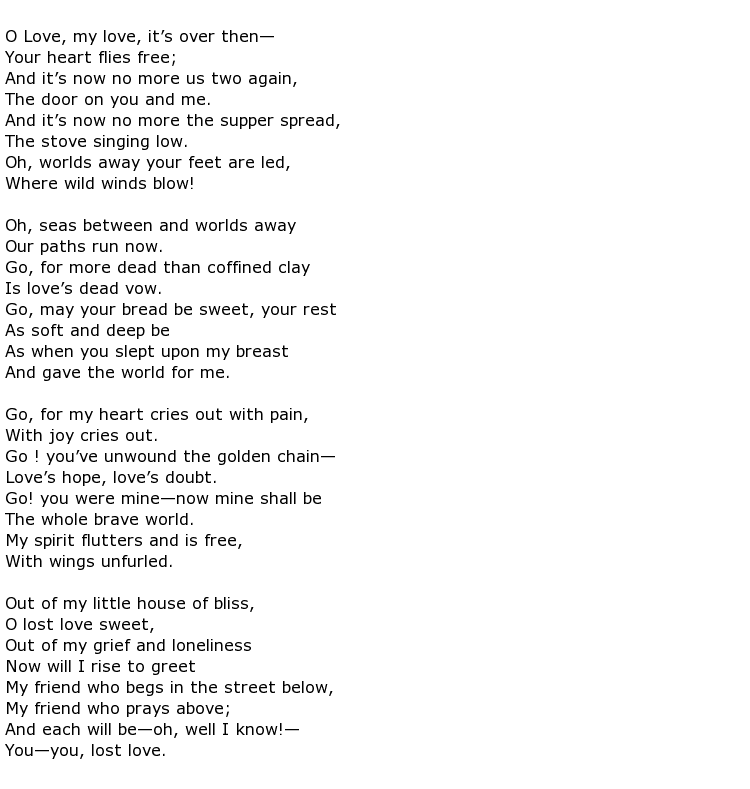 Harriet Monroe was an American poet and a passionate supporter of up and coming young poets. She was the founder and editor of the influential Poetry: A Magazine of Verse which was a vehicle for new poets to get nationwide exposure. She gave a helping hand to poets such as William Carlos Williams, T S Eliot and Ezra Pound. Harriet herself said, at an early age, that she could not bear the thought of dying one day and never be remembered. Well her wish came true; she is not only remembered for her own poetry but for the many fellow writers that she helped along. Her editorial policy was simple:
Harriet Monroe was an American poet and a passionate supporter of up and coming young poets. She was the founder and editor of the influential Poetry: A Magazine of Verse which was a vehicle for new poets to get nationwide exposure. She gave a helping hand to poets such as William Carlos Williams, T S Eliot and Ezra Pound. Harriet herself said, at an early age, that she could not bear the thought of dying one day and never be remembered. Well her wish came true; she is not only remembered for her own poetry but for the many fellow writers that she helped along. Her editorial policy was simple:

Harriet Monroe was born in Chicago, Illinois in December 1860. She was fortunate to grow up in a household full of books and she revelled in the “company” afforded by such writers as Shelley, Dickens and Shakespeare. Without her passion for reading she would have been a lonely child but was inspired by these great men to take up the pen herself. When, at the age of 19, she graduated from the Visitation Academy of Georgetown, D.C. she immediately set about becoming “great and famous” in the world of literature, either through writing plays or poems.
She was 29 when she first had her work published. The poem With a Copy of Shelley appeared in Century magazine. She soon realised though that there was very little money to be made as a poet, especially in comparison with those who painted pictures or sculpted figures. She was determined that this situation would change and, although it was a long struggle, she made some headway in her task.
She became a valued contributor to the Chicago Tribune as a freelance journalist and received sufficient attention to be invited to write a poem to commemorate the discovery of America 400 years previously by Christopher Columbus. She took two years over this and her ode was well received. She even made a substantial amount of money from it when she sued the New York World who had published the poem without asking her permission. She was awarded $5,000.
In 1912 she drummed up sufficient interest from Chicago businesses to get her poetry magazine project of the ground and put her earnings from the law suit into the pot to get things rolling. She effectively worked without salary for two years and, thereafter, took out only what she thought the magazine could afford. The success of the project, and many young poets, was more important to her than money although she worked tirelessly towards the goal of making sure that poets were recompensed properly for their art.
By 1925 it was going well and many well-known poets saw the benefits of her patronage. While some editors and critics had their favourite writers Harriet tried to take a dispassionate view. She believed that if the product was good then the writer should be heard, and then paid properly. This project is, arguably, her greatest achievement although, of course, she still found time to write her own poetry as well. Here is a poignant piece about a woman lamenting her lost love, called Deserted:

Harriet Monroe died in Peru on the 26th September 1936, aged 75.

